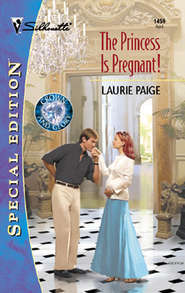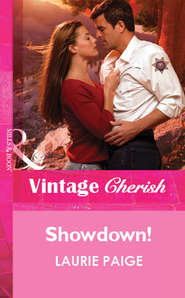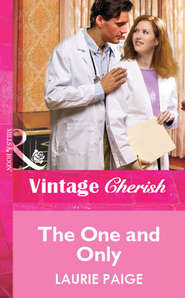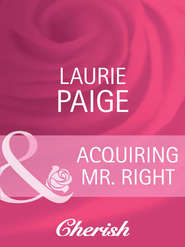По всем вопросам обращайтесь на: info@litportal.ru
(©) 2003-2024.
✖
Under The Western Sky
Автор
Год написания книги
2018
Настройки чтения
Размер шрифта
Высота строк
Поля
“The suspect I brought in this afternoon. I figured she might need some nourishment after having dinner in here.”
“Hey, we have the meals catered,” the night-duty officer declared.
“Yeah, right.”
After a chuckle, the man said, “I’ll have to check what’s in the bag.”
Tony waited, feeling more and more foolish as the cop opened the bag, examined a plastic fork, then the napkin and removed the top from the plastic bowl. “Man, that looks good,” he said.
“Sorry, I didn’t bring any extra,” Tony told the sarge with a sardonic smile. “Got any fresh coffee?”
“Yeah, I made a pot when I came on duty less than an hour ago. Want me to bring you some?”
“That would be great.”
The officer repacked the treat. “I’ll buzz you in. She’s in cell number one.”
The television set mounted on the wall outside the cell was turned on, but Julianne wasn’t listening to the news. She was still wound up from the ordeal with the police.
In spite of being dead tired, she couldn’t get into the mood to sleep. If she’d been at home, she would have tried aromatherapy. Lavender was supposed to be soothing when steeped in hot water. Chamomile tea was a sleep aid, but she doubted the jailer had any on hand.
A loud buzz startled her. The door to the cell block opened and a man walked in. Her heart knotted up in alarm, then relaxed as she realized who he was.
“Oh, for heaven’s sake,” she muttered. She rose from the hard bunk. Glaring between the bars on the door, she demanded, “What are you doing here?”
Her nemesis from the tourist shop stopped in front of her. “I brought you a present.”
He held out a brown paper bag. She eyed it as if it might explode any second.
“It’s okay,” he assured her. “It’s cake.”
“Cake,” she repeated suspiciously.
He gave her a quick but thorough perusal as he slipped the bag between the bars. “It’s safe,” he added with an ironic grin before grimacing and touching his swollen nose.
Twin bruises under his eyes gave him the masked look of a raccoon. She frowned at the pang of guilt that assailed her and reminded herself she’d acted in self-defense.
“Look,” he said, “I felt kind of bad about the hassle we had earlier, I thought about the jail food, so I, uh, brought you some dessert. Chocolate cake.”
She took the treat and sat on the cot. “You’re weird,” she told him. “I know it’s a slow night since there’s no one else in jail, but I’d have thought you could find something more interesting to do on a Saturday evening than hang out at the jail.”
He snorted. “You’re in the women’s cell block. There are several inmates in the men’s section.” He glanced at the two empty cells. “I guess they don’t get many woman criminals around here.”
She ignored the anger that demanded she refute his calling her a criminal. Instead, she gave him a fulminating glance, then opened the brown bag and removed the container.
The fury receded somewhat when she saw the contents. Chocolate was one of her favorite things. She wisely decided not to throw the cake in his face.
When the night-duty officer brought in two cups of coffee, she accepted one of those, too, and thanked the man. Taking a bite of the dessert, she closed her eyes, savoring the rich flavor.
“I have a question,” her captor said, pulling a chair closer to the bars and taking a seat. “Who taught you how to take defensive action?”
For a second she remembered being ten and coming home from school, excited because she’d gotten a perfect score on her math test, then going into the house and finding her mother.
It wasn’t until she’d been in nurses’ training and a rape victim had been brought into the emergency room during her rotation there that she’d realized what her mother must have gone through that terrible afternoon.
Julianne locked the memory away as ancient pain careened around her chest, but it was still a moment before she could speak. “My father sent me and my two brothers to self-defense classes while we were growing up.”
She could almost see the wheels turning in his head as he considered the information. Earlier in the day, when she’d given her personal information, she’d reported her father as her next of kin and her mother as deceased.
“Was there any particular reason he thought you needed them?” he asked.
Replacing the bowl and fork in the bag, she faced him without allowing any expression in her tone. “Our home was broken into when I was ten. My mother was killed.”
For a second his face took on the fierce expression of a warrior who would defend his tribe to his last breath, then it softened and she recognized other emotions—a certain kindness for those who’d been hurt, a touch of sympathy, maybe pity.
Pity was something she didn’t want and didn’t know how to handle when it was offered. She usually mumbled something about life going on and changed the subject, but now her throat closed and she couldn’t say a word. Old emotions, heightened by the events of the day, threatened to overcome her. She swallowed hard and refused to give in to them.
“Were you there when it happened?”
She shook her head.
“Did they find whoever did it?”
Again she indicated the negative.
“Crimes by total strangers are not often solved,” he told her, his tone gentle as if she were still that hurt child of long ago. “There’s no connection or motive for police to follow as there is with husbands or boyfriends.”
“Yes, that’s what the detective said who handled the case.” She returned the bag to him, having eaten three or four bites of the treat. She took a drink of coffee and noted that it was much better than the brew Chuck had given her earlier. The warmth eased the cold spot in her chest, and she relaxed once more. “Thank you for the cake. That was thoughtful. Now I have a question. Why did you bring it?”
“Well,” he drawled, “I know that jail food comes from the lowest bidder.”
That made her laugh. “It wasn’t so bad. We had spaghetti and rolls and a piece of lettuce with a sliver of carrot that was supposed to be a salad, I think.”
After that they talked about the worst meals they’d ever had as if they were acquaintances who were fast becoming friends. He told her the three kids in his family had to take turns preparing meals once a week. He had her cracking up over his description of recipes made with green stuff like lime gelatin or broccoli. His cousin Jeremy would clutch his throat and accuse him of trying to poison them.
“Your family sounds like mine,” she told him. “I took nutrition classes in college, but I could never convince my brothers that green, leafy vegetables were really good for them. They now send me magazine clippings that extol the value of blueberries.”
“Ah, smart men,” he said.
Laughing, she glanced at him, then away. Then, pulled by unexpected forces stronger than her will, she met his gaze through the dull glint of the steel bars. Their eyes locked. The laughter faded.
Something was happening to her. She felt it as a primal shift somewhere in her soul. He felt it, too, she thought. His chest lifted and fell in a slow, careful breath as if he, too, were on shaky ground.
She looked away, wondering how they could have gone from laughter to something profound and infinitely challenging in a heartbeat.
Maybe arresting people did that, although it wasn’t what she would call a bonding event. Recalling his arousal as they struggled, she felt heat creep up her neck. That had certainly been a new and different experience for her.
He could have hurt her, but he hadn’t. Instead of fury, she’d seen self-mocking humor in his eyes when he’d told her to quit thrashing about.











